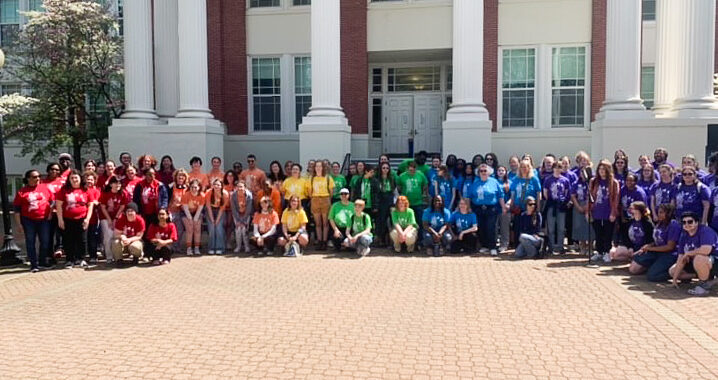Spotsylvania County School Board stops motion to ban books on Nov. 15
4 min read
The Spotsylvania County school board received public backlash after voting to remove sexually explicit books. | Susan Q Yin / Unsplash
by JEAN MONDORO
Staff Writer
Public backlash after a Nov. 15 meeting led the Spotsylvania County School Board to overrule a motion to ban certain books containing sexually explicit material from the school library system. The UMW community has had mixed reactions to the decisions made by the school board.
The debate began at the Nov. 8 school board meeting at which the parents of a high school student shared their concerns about the sexual and pedophilial content displayed in the digital library system. In the midst of the following discussion, two board members supported the parents’ concerns and spoke in favor of banning specific books. The board agreed to review and remove any sexually explicit books from the library shelves and databases.
Following that decision, the school board received backlash from students, parents and staff. At another meeting on Nov. 15, public comments lasted several hours, with most community members speaking out against the ruling to ban any books.
After the initial backlash and review of the banning process, the board voted again during the Nov. 15 meeting, where the original decision to ban these books was overruled by a vote of 5-2.
During the Nov. 15 meeting and the hours of discussion that followed, some people raised concerns about the decisions previously made by the board regarding book censorship.
“The board never voted to ban books,” said Dawn Shelley, chairman of the school board. “Parents brought information to the board’s attention during public comments.”
The concern of the parents stemmed from two books they found that their daughter had access to in the system. “Call Me By Your Name” features main characters in a gay relationship and “33 Snowfish” follows young teens involved with sexual abuse and prostitution. When the board voted to remove materials from the library system, community members expressed frustration that they did not define what content qualifies as sexually explicit.
“Although it was not my motion, the term sexually explicit, as a qualifier, was introduced by myself,” said Shelley. “I chose that term carefully because the definition I had in mind was pornography. I was wrong not to explain my definition, and I apologize. I did so at our last meeting, as well.”
The education department at UMW has been observing and discussing the ongoing issue.
“In my EDUC 206 (Foundations of Education) course, we talk a lot about the historical, social and economic influences that shape education,” said Melissa Wells, assistant professor in the College of Education. “This situation in our own backyard has reminded us of the importance of this work as we advocate for education.”
Along with members of the education department, UMW students have had various reactions to the decisions of the two school board meetings.
“There are books that could help children know what sexual abuse is, but when we expose children to sexual immorality, no matter their age, children begin to delve into things that are not right morally,” said sophomore English major Guin Barkett. “Granted, some of the responses from the school board are a little far-stretched like ‘burning books’ while being online. Yet, there is still a point that we need to protect our children.”
Hollis Cobb, a junior English major in the secondary education program, attended the Nov. 15 meeting in its entirety, engaging in the issue as head of Bookmobile Fredericksburg.
“I had very mixed feelings about the meeting,” Cobb said. “On one hand, it was incredibly reassuring and exciting to see the parents, teachers and students alike come together to speak out against the school board. The 65 public comments were beautifully put and reflected the passion the community has for its schools and the students within them. However, the conduct of the school board made the meeting highly discouraging.”
Another source of frustration and confusion to some community members was the quick response from the school board, as they decided immediately to remove the books. There is already a review process in place for books that parents, students or staff bring up as a source of concern.
“Parents can make librarians aware of specific book concerns they have for their child,” Shelley said about the review process. “The librarians can then flag the child’s library profile so the books their parents are concerned about are not checked out. There are processes and procedures already in place.”
At UMW, students and faculty are reflecting upon these events.
“This issue has led me to become much more involved in and aware of the school board and their impact on the school system,” Cobb said. “As a future educator, it has made me more concerned about becoming a teacher considering how little support the teachers actually get from the school board.”
Wells commented on the impact being made on education students.
“I hope showing future teachers how to be involved in advocating for education from their very first class in the College of Education sets the stage for them to continue this work in their future classrooms,” she said.
While the board has come to a decision now, Shelley foresees the debate carrying on as the board majority shifts in January.











